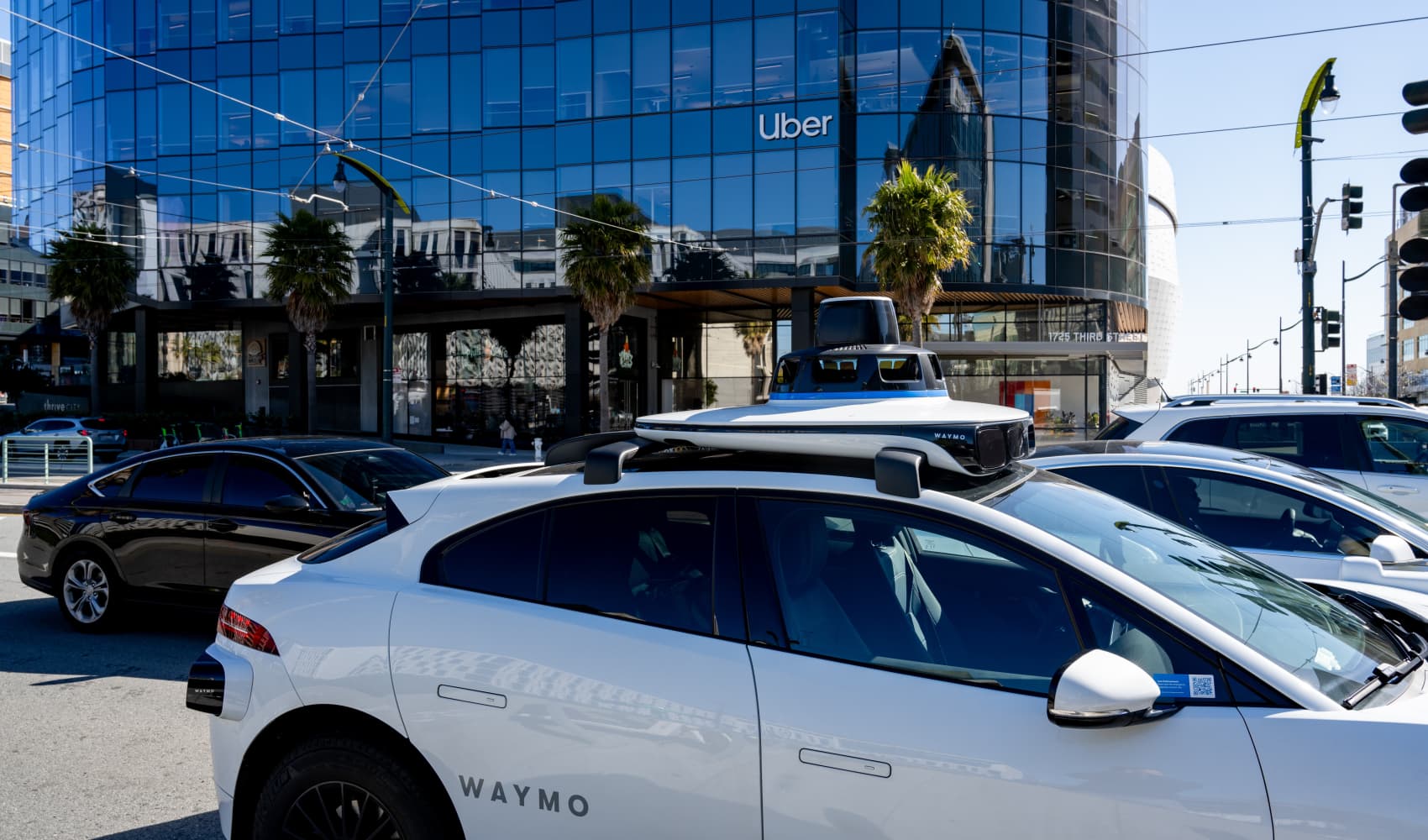Uber's Benefit Changes: Risky Move or Smart Strategy?
Uber's Benefit U-Turn: A Calculated Risk or Road to Ruin?
Introduction: The Ride Gets Bumpy
Remember when employee perks were all the rage? Ping pong tables, unlimited snacks, and generous benefits packages seemed like the golden ticket to attracting and retaining top talent. Well, buckle up, because the ride is changing. Uber, the ride-hailing giant, is shaking things up, and not everyone's happy about it. CEO Dara Khosrowshahi's recent announcement of increased in-office requirements and changes to benefits has sparked a heated debate, raising questions about the future of work and the value of employee well-being. Is this a necessary step for Uber's long-term success, or a risky gamble that could backfire?
The "It Is What It Is" Moment: A CEO's Blunt Assessment
During an all-hands meeting, Khosrowshahi reportedly told employees "it is what it is" in response to concerns about the changes. Ouch. That's not exactly the touchy-feely response many employees were hoping for. While honesty is appreciated, some might view it as a bit...tone-deaf. Was this a strategic move to be upfront, or a misstep that could damage morale?
The Core Changes: What's on the Table?
So, what exactly are these changes that have everyone buzzing? Let's break it down:
- Increased In-Office Requirement: Uber is now requiring employees to be in the office three days a week. Goodbye, fully remote dreams (for some, anyway).
- Sabbatical Benefit Changes: Eligibility requirements for the month-long paid sabbatical have been altered. This perk, once a coveted benefit, is now potentially less accessible.
Why the Fuss? Understanding Employee Concerns
It's not hard to see why these changes are causing a stir. Remote work offered flexibility, work-life balance, and cost savings (think: less commuting!). Sabbaticals provided a much-needed break to recharge and prevent burnout. Taking these perks away, or making them harder to obtain, can feel like a punch to the gut. Employees might feel undervalued, leading to decreased morale and potential talent drain.
Khosrowshahi's Rationale: The "Risk We Decided to Take"
Khosrowshahi acknowledged that these changes would be unpopular but framed them as a "risk we decided to take." But why? What's the reasoning behind these decisions? Let's dive into some potential explanations.
Boosting Collaboration and Innovation
One argument is that being in the office fosters collaboration and innovation. Think about it: spontaneous brainstorming sessions, water cooler conversations, and the energy of a shared workspace. Can these things truly be replicated remotely? Uber may believe that in-person interaction is crucial for its future success.
Reinforcing Company Culture
Another reason might be to reinforce company culture. A strong culture can be a powerful asset, attracting and retaining talent and driving performance. By bringing people back to the office, Uber might be hoping to create a more cohesive and unified work environment.
Improving Communication and Alignment
Communication can be challenging in a fully remote environment. Bringing employees back to the office could improve communication flow, reduce misunderstandings, and ensure everyone is aligned on company goals. Are these benefits worth potentially alienating some employees?
The Potential Downsides: A Balancing Act
While there might be valid reasons for these changes, there are also potential downsides to consider.
Reduced Employee Morale and Productivity
As mentioned earlier, taking away perks can negatively impact morale. Unhappy employees are often less productive. Is the potential gain in collaboration worth the risk of decreased individual output?
Talent Drain: Losing Key Employees
In today's competitive job market, employees have options. If they're not happy with the changes, they might simply leave for a company that offers better flexibility and benefits. Losing experienced and valuable employees could be a major blow.
Increased Turnover Costs
Replacing employees is expensive. Recruitment, onboarding, and training all come with a hefty price tag. Increased turnover could strain Uber's resources and negatively impact its bottom line.
The Hybrid Work Debate: Finding the Sweet Spot
The shift at Uber underscores the ongoing debate about hybrid work models. What's the right balance between in-office collaboration and remote flexibility? Is there a one-size-fits-all solution, or does it depend on the company and its specific needs?
The Benefits of Remote Work: Why It's Still Appealing
Let's not forget the many benefits of remote work: increased flexibility, improved work-life balance, reduced commuting time, and cost savings. These are all things that employees value, and companies that ignore them do so at their peril.
The Drawbacks of Remote Work: The Challenges of Isolation
On the other hand, remote work also has its drawbacks: potential for isolation, difficulty collaborating, blurred lines between work and personal life, and challenges maintaining company culture. Finding the right balance is key.
The "It Is What It Is" Aftermath: Employee Reactions
How have Uber employees reacted to these changes? While it's difficult to gauge the overall sentiment, it's safe to say that many are not thrilled. Online forums and social media are likely filled with discussions and debates about the pros and cons of the new policies.
The Broader Industry Trend: Are Others Following Suit?
Is Uber an outlier, or is this part of a broader trend? Are other companies also scaling back on remote work and benefits? It's important to keep an eye on industry trends to see if this is a sign of things to come.
Companies Embracing Remote Work: The Flexible Future
Some companies are doubling down on remote work, recognizing its benefits for employee satisfaction and productivity. These companies see remote work as a competitive advantage, attracting and retaining top talent.
Companies Requiring In-Office Presence: The Return to Tradition
Other companies are taking a more traditional approach, requiring employees to be in the office full-time or most of the time. These companies believe that in-person interaction is essential for collaboration and innovation.
The Long-Term Impact: What Does the Future Hold?
What will be the long-term impact of Uber's decision? Will it lead to increased productivity and innovation, or will it backfire and result in decreased morale and talent drain? Only time will tell.
Lessons Learned: Adapting to the Evolving Workplace
Regardless of the outcome, Uber's experience provides valuable lessons for other companies navigating the evolving workplace. Flexibility, communication, and employee well-being are all crucial factors to consider.
Conclusion: A Calculated Gamble or a Costly Mistake?
Uber's CEO's decision to change employee benefits and increase in-office requirements is undoubtedly a risky move. Whether it's a calculated gamble that pays off in the long run, or a costly mistake that damages employee morale and talent retention, remains to be seen. The key takeaway is that companies need to carefully weigh the pros and cons of their decisions and communicate transparently with their employees. The future of work is constantly evolving, and companies must adapt to stay competitive and attract and retain top talent.
Frequently Asked Questions
- Why is Uber increasing its in-office requirements? Uber believes that increased in-person collaboration will boost innovation, reinforce company culture, and improve communication.
- What changes were made to the sabbatical benefit? Specific eligibility requirements were altered, potentially making the benefit less accessible to some employees. The details are generally company-specific and not public.
- How are Uber employees reacting to these changes? Initial reactions appear mixed, with some employees expressing concern about the loss of flexibility and the potential impact on work-life balance.
- Are other tech companies making similar changes to their remote work policies? Some companies are increasing in-office requirements, while others are embracing remote work. There is no uniform industry trend.
- What are the potential consequences of Uber's decision? Potential consequences include decreased employee morale, increased turnover, and difficulty attracting and retaining talent. However, there's also a possibility that it improves collaboration and innovation, ultimately benefiting the company.

